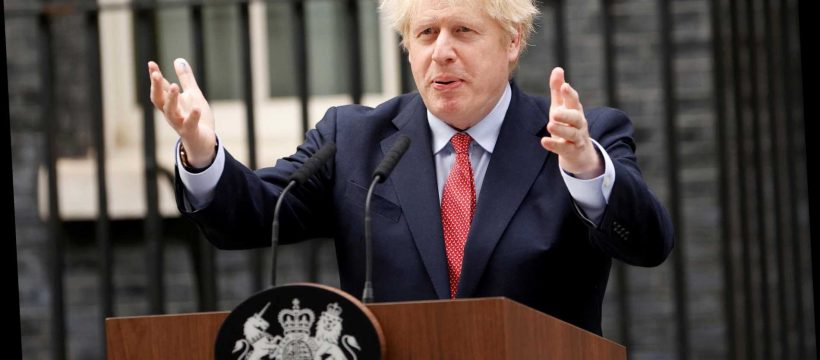BORIS Johnson will give a dramatic coronavirus statement to the country on Monday to set out new restrictions.
The Prime Minister will use the occasion to outline a new "tiered" approach to how local Covid situations will be treated amid a surge in infections in the North West of England.
⚠️ Read our coronavirus live blog for the latest news & updates
The Prime Minister's chief strategic adviser Sir Edward Lister has written to MPs following a meeting with northern leaders today.
In a letter shared online, Sir Edward stated that "rising incidence" of Covid in parts of the country mean it is "very likely" that certain local areas will face "further restrictions".
The letter adds: "The government will discuss a set of measures with local leaders all of which present difficult choices.
"We must seek to strike the right balance between driving down transmission, and safeguarding our economy and society from the worst impact."
The Welsh government has also tightened a local lockdown in the area of Bangor following a sharp rise in cases in the region.
From 6pm on Saturday, people will not be allowed to enter or leave the area without a "reasonable excuse" and can only meet people they do not live with outdoors.
The Prime Minister's dramatic address comes amidst a surge in cases across the UK.
A major study today revealed that Covid infections are doubling every fortnight in the Midlands and Yorkshire – twice as fast as the rest of England.
There are now 45,000 new cases daily across the country, according to Imperial College London experts.
Scientists calculate it is now taking 29 days for coronavirus infections to double nationally.
But London is bucking the trend, with cases beginning to fall.
The findings are based on swabs of 175,000 volunteers between September 18 and October 5.
But other figures show that new restrictions introduced in hard-hit areas are having some impact as the country's 'R' rate – the rate of infection – has decreased.
The R rate – how many other individuals each case goes on to infect – has fallen to 1.16 nationally compared to 1.39 in early September.
But Yorkshire and The Humber, the West Midlands and the North West are faring much worse than other parts of England with 'R' values of between 1.27 and 1.37.
In contrast, it is below one in London, meaning the number of cases are currently falling in the capital.
'NORTH-SOUTH DIVIDE'
The worrying figures show the unequal geographical spread of the virus – as MPs and local leaders in the North voiced their anger over the prospect of further restrictions.
During his address on Monday, the PM is expected to announce the closure of hospitality venues in hard-hit areas such as Liverpool or Manchester.
But ministers have been accused of using data from just 98 pubs to justify the shutdown of tens of thousands of venues in these regions.
One MP claimed the Government has “cobbled together” statistics to shutter pubs and restaurants, putting the jobs of thousands on the line.
A cross part group of 149 MPs representing the North and Midlands were briefed by Professor Whitty.
But they claimed they were shown "meaningless" and highly selective figures to "retrospectively" prove the need for closures, the Telegraph reports.
Other regions of the UK are also seeing a tightening of restrictions following a surge in cases.
Scotland saw all pubs shut at 6pm today as part of new measures introduced by First Minister Nicola Sturgeon to stop the spread.
Restaurants and bars have been banned from selling booze and must close at 6pm tonight as a new curfew kicks – with a 16-day total shutdown in the Central Belt.
The 'central belt' included Greater Glasgow & Clyde, Lanarkshire, Ayrshire & Arran, Lothian and Forth Valley – and impacts about 3.4million people.
And in Wales, the city of Bangor has been hit with a local lockdown after its infection rate reached 400 cases per 100,000 people.
First minister Mark Drakeford said the new cases were linked to "people socialising" as well as "young people and students".
But Mr Drakeford said that where local restrictions had been in place for longest – in parts of south-east Wales – there was evidence that Covid-19 was "beginning to come under control".
In Blaenau Gwent, there were more than 300 cases of the virus per 100,000 people, but this has now reduced to less than 100 cases per 100,000 people.
Mr Drakeford said the Welsh Government was "actively exploring the next steps" with local authorities in such areas, but the pattern was not yet stable enough to lift restrictions.
Source: Read Full Article





